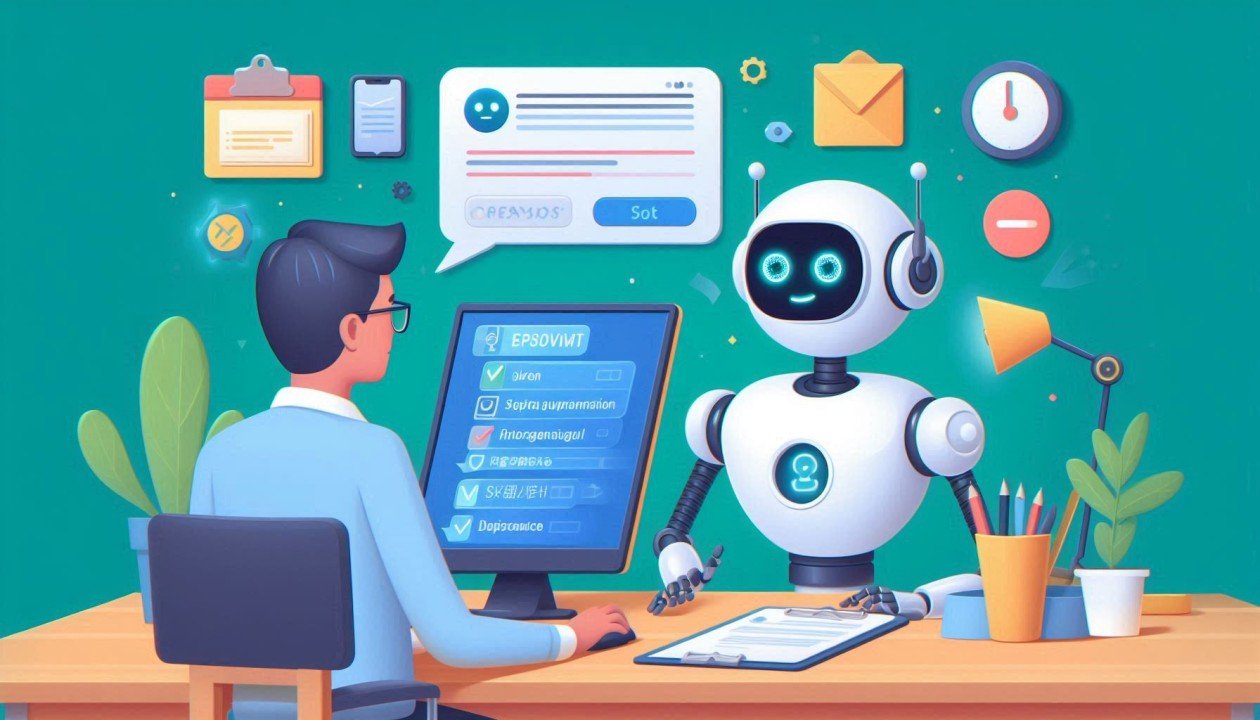Introduction
The hiring process has evolved dramatically over the last decade. From video interviews to automated résumé screening, technology has reshaped every phase of recruitment. Yet, one of the most significant transformations is happening in interview preparation — all thanks to AI interview assistants.
AI interview assistants are no longer futuristic concepts. They’re real, accessible, and powerful tools designed to help job seekers simulate interviews, analyze responses, and improve their communication skills. Whether you’re preparing for a coding interview at Amazon, a behavioral round at Google, or a product management discussion at a startup, these assistants provide data-driven, real-time feedback that was once impossible without a human coach.
In this blog, we’ll explore in detail how AI interview assistants work, their core capabilities, and how they’re transforming interview readiness for candidates across industries.
1. What Are AI Interview Assistants?
AI interview assistants are intelligent, machine-learning-powered platforms that help job seekers practice and refine their interview performance. They simulate realistic interview scenarios, ask domain-specific questions, evaluate answers, and provide actionable feedback.
Unlike traditional mock interviews that depend on human availability or subjective opinions, AI assistants provide objective, scalable, and 24/7 accessible assessments.
Most systems are trained on large datasets of real interview questions from top companies, along with linguistic and behavioral models that understand what strong answers look like. Using natural language processing (NLP), computer vision, and voice analytics, these assistants assess multiple layers of communication simultaneously.
2. The Core Technologies Behind AI Interview Assistants
AI interview assistants are a product of several intersecting technologies. Here’s what powers them:
a. Natural Language Processing (NLP)
NLP helps the system understand, interpret, and evaluate the words you use during an interview. It identifies clarity, coherence, tone, and keyword relevance. For instance, if you give a generic response like “I’m a team player,” NLP models analyze it for depth and prompt you to elaborate with an example.
b. Computer Vision
In video-based interviews, computer vision algorithms monitor facial expressions, body posture, and eye contact. They detect subtle cues — like lack of engagement or nervous gestures — to provide feedback on your non-verbal communication.
c. Speech Recognition and Tone Analysis
AI systems use speech analysis to detect your tone, pitch, pace, and filler words. They flag overuse of words like “um,” “actually,” or “like,” and suggest pacing strategies for clear delivery.
d. Machine Learning (ML) Models
ML models continuously learn from candidate responses. Over time, they refine feedback accuracy by comparing performance data across thousands of users and adjusting scoring mechanisms.
e. Predictive Analytics
Some advanced assistants provide predictive scoring — estimating how well your performance aligns with real recruiter expectations, such as “communication clarity: 85%,” “confidence level: 78%,” etc.
3. The Core Capabilities of AI Interview Assistants
AI interview assistants aren’t just about answering questions. They’re designed to mirror a real hiring environment and guide you toward mastery in communication, confidence, and structure.
Here are the main capabilities that make them so effective:
a. Personalized Interview Simulation
The system tailors interviews to your target role and company. If you’re applying for a data scientist position, expect deep technical and scenario-based questions. For a product manager, the focus might shift toward leadership and strategic thinking.
b. Behavioral Response Analysis
Behavioral questions — like “Tell me about a time you failed” — are difficult to master. AI systems evaluate your responses using the STAR method (Situation, Task, Action, Result) and provide real-time corrections if your answer lacks structure or measurable outcomes.
c. Body Language and Expression Feedback
Video-based interview assistants help you assess non-verbal communication. They detect facial tension, poor posture, or inconsistent eye contact and suggest techniques to project confidence and empathy.
d. Voice and Tone Coaching
Voice modulation plays a huge role in how your responses are perceived. AI assistants can track fluctuations in tone and identify whether you sound enthusiastic, nervous, or monotonous — helping you find the ideal balance.
e. Bias-Free Evaluation
Unlike human evaluators, AI tools don’t carry unconscious biases. They rely solely on measurable performance metrics, ensuring fair and consistent feedback across users.
f. Progress Tracking Over Time
AI assistants create a learning curve — tracking your improvement after every practice session. You can visualize growth through confidence scores, clarity metrics, or storytelling grades.
g. Customized Feedback Reports
After each session, the AI generates a comprehensive report covering verbal performance, non-verbal cues, language quality, and content relevance. These insights allow candidates to focus on specific areas of improvement.
4. How AI Interview Assistants Help Candidates Prepare for Real Interviews
The benefits of using AI interview assistants go beyond practice. They create a psychologically accurate simulation of real interview pressure — helping you adapt faster and perform better.
a. Building Real-Time Adaptability
AI-driven scenarios mimic dynamic conversations. When the AI asks a follow-up question, you must respond naturally — just like in a real interview. This helps candidates think on their feet and improve composure under stress.
b. Reducing Interview Anxiety
Practicing repeatedly in a realistic, yet non-judgmental environment helps reduce performance anxiety. Over time, your brain associates interviews with predictability and control rather than fear.
c. Creating a Structured Thinking Process
AI tools encourage candidates to structure answers logically, avoiding rambling or incomplete thoughts. Regular feedback trains you to organize ideas efficiently — a critical skill in behavioral and leadership interviews.
d. Improving Communication Clarity
By providing measurable data on speech pace, filler word count, and tone consistency, AI assistants help users communicate with precision — improving both clarity and professionalism.
e. Enhancing Self-Awareness
One of the most powerful outcomes of using AI interview assistants is self-awareness. By watching your recorded sessions, you become conscious of your gestures, expressions, and energy levels — allowing continuous self-correction.
5. AI Interview Assistants vs. Traditional Coaching
While traditional interview coaching has its value, AI assistants bring unparalleled scale and objectivity. Here’s how they differ:
| Feature | AI Interview Assistants | Traditional Coaching |
|---|---|---|
| Availability | 24/7 access | Limited to schedule |
| Feedback Speed | Instant | Delayed |
| Cost | Affordable or free | Expensive |
| Objectivity | Bias-free and data-driven | Subjective |
| Scalability | Global reach | One-to-one |
| Consistency | Standardized evaluation | Varies by coach |
| Personalization | Role- and company-based | Depends on coach expertise |
AI doesn’t replace human mentorship — it complements it. The combination of AI feedback and personalized coaching often yields the most effective preparation outcomes.
The Bottom Line
AI interview assistants are fundamentally reshaping how candidates prepare for interviews. They democratize access to personalized coaching, making it possible for anyone — regardless of location or background — to prepare like a top-tier professional.
By combining behavioral insights, communication analysis, and data-driven improvement loops, these tools empower candidates to transform weaknesses into measurable strengths.
Whether you’re a student preparing for your first job or a senior professional targeting a leadership position, embracing AI-driven interview preparation is no longer optional — it’s strategic.
In a world where every job interview can define your career trajectory, AI interview assistants act as the silent mentors — helping you become your best professional self before the spotlight turns on.
https://zynrewards.org




Leave a Reply